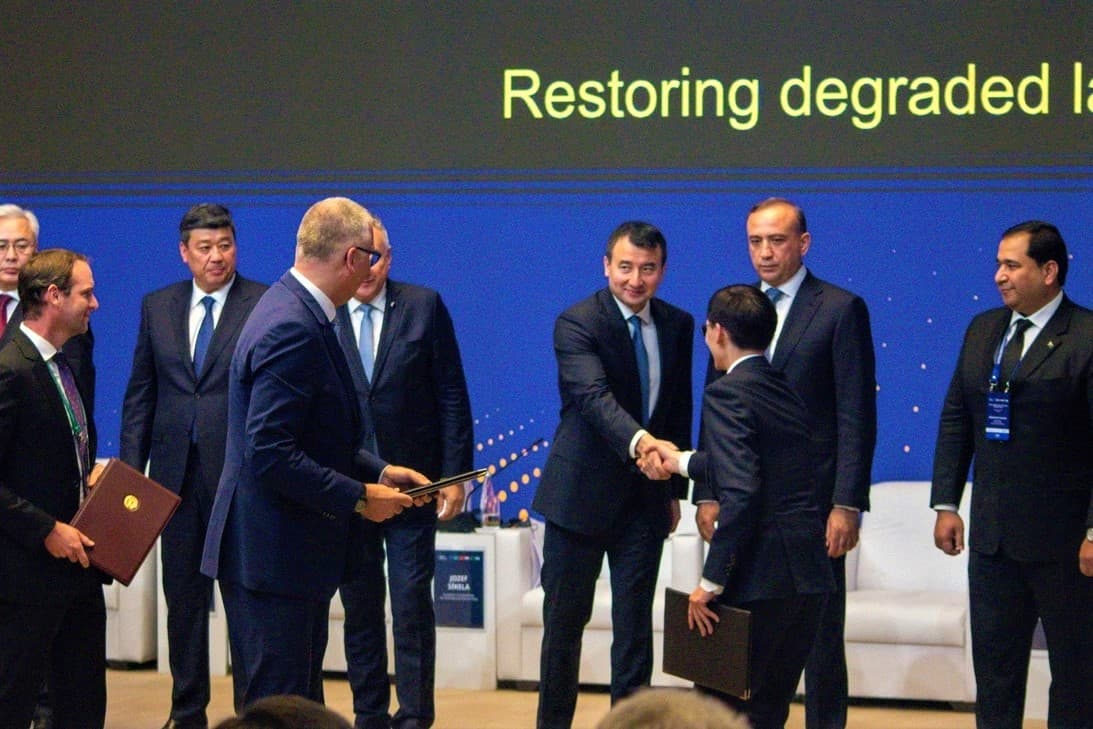
The Third Central Asia-EU Economic Forum was held in Tashkent on November 26, where key areas of strategic cooperation were identified. Discussions focused on green energy, digital connectivity, and critical raw materials.
The main outcome for the region was the confirmation of the European Union's readiness for large-scale investments within the framework of the Global Gateway strategy, as well as the identification of the Trans-Caspian Transport Corridor as a priority route.
Turkmenistan is a Key Hub in the Global Gateway Corridor
EU Commissioner for International Partnerships Jozef Sikela emphasized that infrastructure and transport are two key pillars of cooperation. He recalled that the EU is mobilizing a €12 billion financing package for Central Asia under the Global Gateway strategy, a significant portion of which is targeted at transport connectivity.
Direct benefits for Turkmenistan
Trans-Caspian Route: The EU confirms its support for the development of the Trans-Caspian Transport Corridor (TCTC). Commissioner Sikela previously stated its commitment to reducing trade times between Europe and Asia to 15 days, emphasizing Turkmenistan's key role in creating faster and safer trade routes.
Turkmenbashi Port: Support for the TCTC opens new opportunities for the Turkmenbashi International Seaport, a strategic link in this route connecting Asia and Europe via the Caspian and Black Seas.
From the Caspian to Europe: A Green Strategic Corridor
The Forum noted that Central Asia has the potential to become a reliable partner for the EU in global decarbonization. In this context, the potential of a Green Strategic Corridor, which will connect the countries of Central Asia, the Caspian and Black Seas, and Europe, was presented. This initiative will strengthen mutually beneficial energy ties and open up new opportunities in renewable energy, green hydrogen, and low-carbon industrial projects in the region. Turkmenistan, which is taking steps to integrate into the global green agenda (including by joining the Global Methane Commitment), is becoming an important player in this new energy partnership.
Trade and Investment
European Commissioner Sikela noted that the EU remains Central Asia's second-largest trading partner and largest investor, with trade between the regions growing by nearly 3%. He expressed hope that this trend will accelerate as the Enhanced Partnership and Cooperation Agreements (EPCAs) enter into force, providing legal certainty for businesses.
Projects aimed at strengthening value chains for critical raw materials, with a focus on processing and local value creation, and the restoration of degraded lands in the Aral Sea region (a €48 million project) were signed, which aligns with the environmental priorities of the entire Central Asian region.
Furthermore, two regional projects aimed at improving border management and combating cross-border drug trafficking (under the BOMCA and CADAP programs) were signed, which have direct practical implications for ensuring Turkmenistan's border security.
ORIENT
